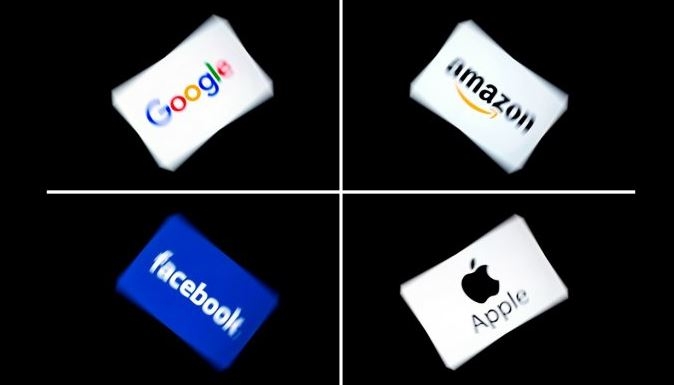This week, Google announced a sharp fall in earnings. According to social network firms such as Meta, advertising revenues, the lifeblood of their operations, have abruptly cooled. Microsoft, perhaps the most steady performer in the IT sector, forecast a slowdown until at least the end of the year.
During the last decade, technology corporations drove the U.S. economy and supported the stock market during the darkest days of the coronavirus epidemic. Now, in the face of persistent inflation and increasing interest rates, even Silicon Valley’s largest companies are hinting that difficult times may lie ahead.
Companies face the same difficulties as the rest of the economy. As a result of strong consumer spending during the pandemic, the company spent in order to meet customer demand. Now that expenditure is decreasing, they are attempting to adapt. It has not been simple.
Amazon, which had 798,000 workers at the start of 2020, is restricting development of its warehouse operations by mothballing buildings, terminating leases, and postponing plans to create new facilities. In the second quarter, the corporation employed 1.52 million individuals, over 100,000 fewer than at the end of March.
Most businesses would love to have the difficulties of the leaders in the technology sector. Google and Microsoft had a combined profit of $31.5 billion in their most recent quarter. On Thursday, Apple is poised to announce that it earned more than $20 billion in a quarter that was otherwise disappointing.
However, their rapid deceleration reveals a vulnerability. In recent years, the major technology businesses have not identified a fresh, highly lucrative concept. Despite years of investment in new companies, Google and Meta continue to depend heavily on advertising revenue. 15 years after its introduction, the iPhone continues to generate Apple’s revenues.
This has rendered some of them susceptible to the once-disruptive newcomers they previously were. TikTok is challenging YouTube, which is owned by Google, as well as Meta’s Facebook and Instagram social networking platforms. Meta said on Wednesday that its earnings for the most recent quarter was more than 50 percent lower than the same period last year.
The downturn has been more severe for enterprises in emerging sectors, such as crypto and the gig economy, than for semiconductor manufacturers. This year, the value of Bitcoin has fallen by two-thirds, pulling a number of start-ups with it. Uber, the industry pioneer in ride-hailing, has reduced expenditure as investors lose tolerance with underperforming operations.
As sales of personal computers, cellphones, and home appliances stall, semiconductor firms are reducing expenditure on factories and equipment. Tuesday, Texas Instruments informed financial analysts that the epidemic is extending to sales of items such as heating controls and manufacturing robots. China’s Covid-related lockdowns and the looming prospect of trade and technology restrictions have exacerbated the situation.
This week, Google and Microsoft promised investors that they would reduce employment and monitor growing energy and supply chain costs. Apple has said that it intends to increase its workforce with more deliberation as the economy suffers.
Other businesses are implementing new tactics. Netflix, crippled by sluggish membership growth, seeks to revitalise its company next month with the launch of an ad-supported, lower-priced version.
Meta is investing billions in the development of a so-called metaverse, which it believes will be the next big thing in technology. However, this expenditure is quite costly for the business. Meta said that its Reality Labs business, which is responsible for virtual reality and augmented reality activities fundamental to the metaverse, had lost $3.7 billion compared to $2.6 billion a year before.
During almost three years, the growth of digital firms was fueled by businesses sending employees home and schools moving lessons online. Covid-19’s aftermath worked to the industry’s strengths.
Students and employees lavished on iPhones and laptops. Cloud storage and videoconferencing software were acquired by businesses to facilitate remote work. And individuals confined to their homes turned to online purchasing, forcing small firms to invest more on digital advertisements in the hopes of attracting new clients.
It is hard for technology businesses to sustain such growth. Global smartphone and computer sales are declining. Amidst a weakening economy, corporations are examining their expenditures on cloud computing. Consumers have returned to shops and are spending their money on trips, concerts, and sports events – the in-person experiences for which they previously forewent paying.
Apple is likely to disclose on Thursday that iPhone sales increased 7 percent for its fiscal year that ended in September, a dramatic drop from previous year’s over 40 percent growth. Analysts on Wall Street anticipate that sales would decrease next year as clients in the United States and China suffer with economic slowdowns.
A similar reversal in computer sales might exacerbate Apple’s troubles and bring down its longstanding competitor, Microsoft. The market for computers is declining at the quickest pace in decades. Apple’s Mac business is suffering as a result of the reduction, and Microsoft has predicted a 30 percent drop in Windows sales in the last months of this year.
Microsoft has already overcome weak PC sales by betting on the exponential development of its Azure cloud computing platform. However, this sector has started to decline as cloud clients seek to cut costs.
Microsoft reported on Tuesday a 35 percent gain in Azure revenues, a decrease from earlier in the year. Analysts anticipate that Amazon, which will report profits on Thursday, will also note that its cloud computing business growth has slowed.
Beginning the industry’s decline was a decline in internet advertising sales. When Apple issued privacy improvements earlier this year, it became more difficult for Meta and Snap to target their digital advertisements. Wednesday, Meta issued a warning that there was no respite in sight for the weakening advertising industry.
